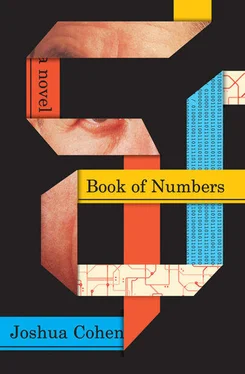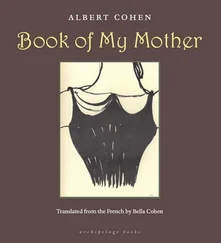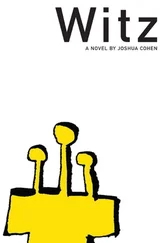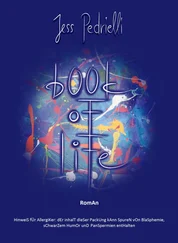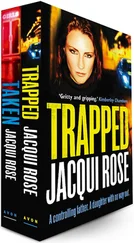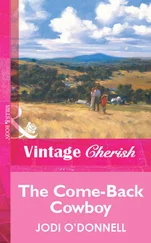Joseph never recovered from this trauma. Cancer, the family’s remontant curse, developed. Colorectal. Adenocarcinoma of the bowel.
Joseph arranged to sell Cohen Cooling Solutions, Inc., to his employees, liquidate and sell the locations of his two Chilliastic outlets — one in New Jersey, one in Staten Island — to Lowe’s? Walgreens? and to the Staten Island Mall (Sears was built on its ashes), retiring to oncologists’ offices and New York Presbyterian for a colectomy and two rounds of chemotherapy that left him uncured, without options, and so weakened that he stayed most of the time not at his too oppressively large splitlevel in Valley Stream, Long Island, but in that small bungalow he also owned on the beach in Far Rockaway, Queens.
The decline of the iceman was tragic [REWRITE]. Joseph Cohen, with his cold [business sense?] and warm [heart?], had exerted an indelible influence over his son, and over his grandson too, who regarded him as a wizard, with the power to change the elements[, to turn the states]: liquids to solids, to liquids again, to gas.
Joseph Cohen [might’ve been a greenhorn but he had a green thumb, a man] who grew apples from asphalt, berries from tar. An inveterate tinkerer who [FILL ALL THIS IN].
Cohen, who founded his career on memory, on the notion that memory is the future’s greatest commodity,
The time Cohen spent with his grandfather in the last summer of his grandfather’s life comprises Cohen’s only memory of
Summer 1977, Joseph was ailing, and Abs took a leave of absence from PARC, and took his only son, then six years old, to New York. Cohen’s memories of that trip are myriad. The trains submerging and surfacing, the pneumatics of the bus. How whenever he entered and exited a deli it rained [the dripping air conditioning?]. How wherever he was, even at night, it was daytime — neon, the commonest of the noblest gases. His grandfather’s plot: the raspberry and blueberry bushes. The feel of the house — a cottage, remote, damp, decaying, in no way accessible to masstransit [the A train back then too?]. Two bedrooms, a livingroom — a tiny garage in which Joseph kept a white Plymouth Duster and a workbench. Tools were kept in pristine condition, orderly. Mason jars had been saved from neighboring trash, meticulously labeled: “screws,” “nails,” “nuts ’n’ bolts,” “good nuts.”
One morning Cohen only remembers as having been about a week before his birthday a last issue arose? regarding the pending sale of Cohen Cooling Solutions, and Abs insisted on going into Manhattan to handle it himself. Joseph, surprisingly, agreed. He’d never felt healthier. He’d spare his son the job of minding a child so that Abs would have the tougher task of minding the lawyer,? Dubin, a Park Avenue Litvak.
Abs went, and then called from the law office to check in, and since his father’s positive report was convincing he took the opportunity to have dinner with? Ramirez — formerly the cooling business’s supervisor, now the president of its ownership cooperative — and a few friends from Stanford who’d just been hired at Columbia?
That evening Joseph took his grandson for a walk on the beach. The setting both was, and was not, unusual [THIS SENTENCE BOTH IS, LAZY AND RIDICULOUS]. Abs and Joseph had taken Cohen out for a walk along the beach each day of their stay. Cohen liked the air. He liked being under the sky. What impressed Cohen the most was how his grandfather knew the names of all the trees on the way to the beach, and even knew the names of the rocks and stones, and the game was that Cohen would point at one or pick one up and his grandfather would tell him what it was and in doing so would bring it into being, into a better or clearer being [UNLIKE THIS WORSENING AND UNCLARIFYING SENTENCE]. Joseph was also familiar with the shells and related to Cohen how they were the homes of animals, huts of protein and mineral, keratin and calcium carbonate, though they weren’t homes in the human sense in that the ocean creatures didn’t hire architects and contractors but made them themselves, they made them with sweat, he explained, or by sweating, and when they outgrew them, they left to sweat out a larger one, and when they died, they left their shells behind but no other ocean creatures would touch them because, he said, “It is indecent to dwell in a shell you haven’t sweated for.” Cohen remembers his grandfather always trying to take his hand whenever he went to touch something, to take it. “This is the story of the Jews,” Joseph had said. “The story of the Jews in America.”He remembers his grandfather always removing from his hand that something he’d taken and placing it back on the beach, placing it, not letting it fall, exactly where it’d been taken from. “Seagulls are goyim — they pick up and drop, pick up and drop.”
Joseph shocked his grandson by telling him that sand was made out of rocks and stones—“ground down into dust,” he told him, “grinding is their working”—and Cohen was skeptical. Joseph also shocked Cohen by telling him that the clouds were made out of the same stuff the ocean was, water, the same stuff that he and his grandson were made out of, and that water was two parts hydrogen to one part oxygen brought together by covalent bonds, and then he told Cohen to take off his flipflops and wade, and that the water was as old as the earth, billions of years old, and that the water they drank was billions of years old too, all water was, even the water inside him and his grandson. When they purchased a knish from a boardwalk vendor and Joseph requested water and the vendor charged him a nickel, he said to Cohen, “Remember when you drink it this water is billions of years old, that you have stuff billions of years old in you, and that the chances are that the molecules, the atoms you’re drinking, have been in you before and so are now just coming home.” And then Joseph said, “You should never pay for water — you should maybe have to pay for the cup but never for the water.”
Then it was fully night and the stars were in full relief and Joseph pointed out how they too had shapes like clouds, or were as shapeable as clouds. Joseph pointed out Ursas Minor and Major, the bears, and Orion, who could never lose or gain weight because his belt had only a limited number of notches, and the clawing crab, which he said had given its name to the disease he had, Cancer, because the marks it left on the body were like pincer pricks, and then he said, “And that’s the lobster thermidor, and that’s the shrimp scampi.”
He said, “They’re incredible, the constellations, how random they are, how arbitrary — the Chinese think Orion is actually a white cat playing with a purple bird, or else it’s really the Japanese who think that but about the Canis constellations, the dogs.”
Then, though Cohen was only dimly aware, his grandfather continued to invent them: “That constellation,” but Cohen wasn’t able to follow Joseph’s finger, “is the davening rabbi,” and Joseph waved his entire hand and pointed out, “the negligent mechanic — there, there, there, there,” and “the criminal nurse with the catheter needle — just here,” and “the east-west yarmulke, also called the angry beard,” and he encouraged Cohen to find his own and Cohen tried.
Joseph went on to mention Europe, which was “there, then,” and Cohen was aware that his grandfather was talking about a landmass now and not stars.
Joseph had never mentioned Europe before, but Abs had, a bit, and Sari, to be cryptic, would speak in its languages to her parents , “Ma and Pa Le Vay. Ilona and Imre, the elders I.”
“Think of our ancestors,” Joseph said. “They knew the very same stars. As old as water. Older maybe. Then again maybe not. Same stars.”
He said, “Pick one,” and Cohen, when faced with all those fantastical animals and archers, those electricians and plumbers, settled on the shiniest, and Joseph said, “Polaris, the North.”
Читать дальше
